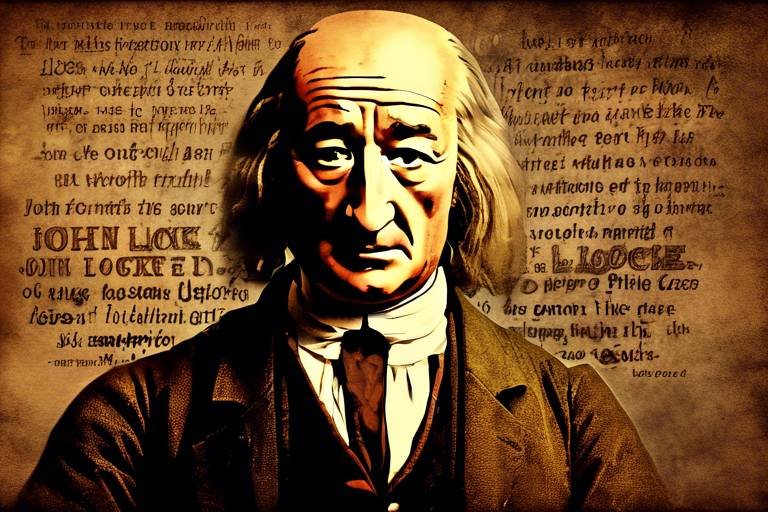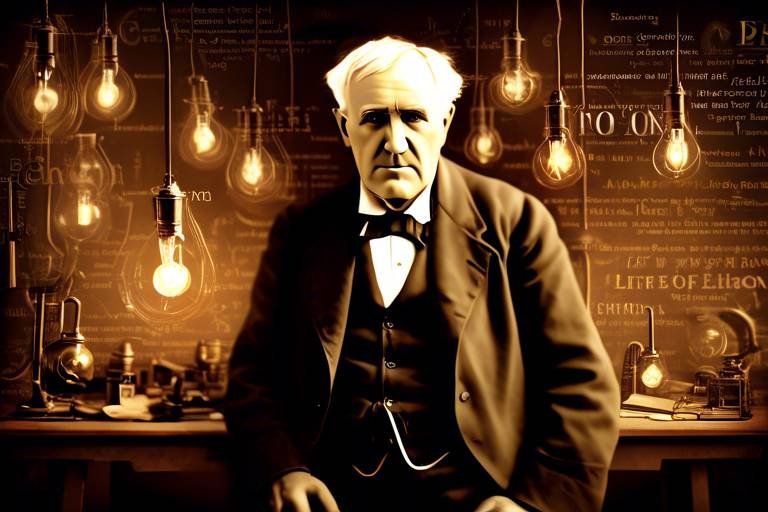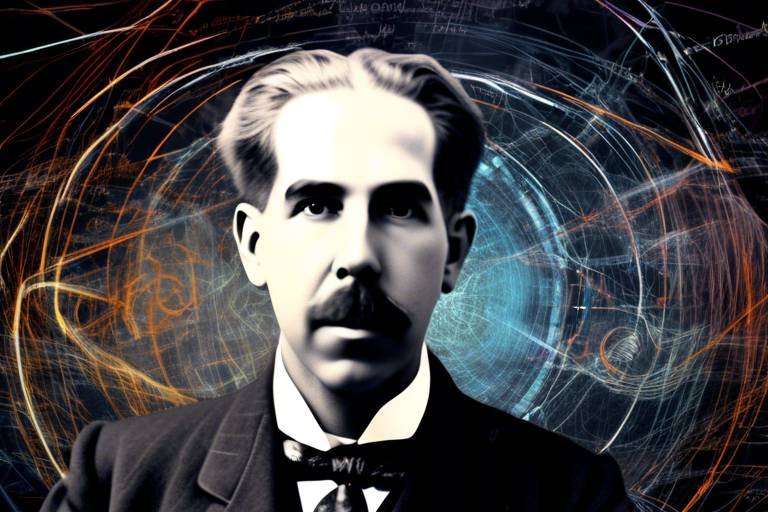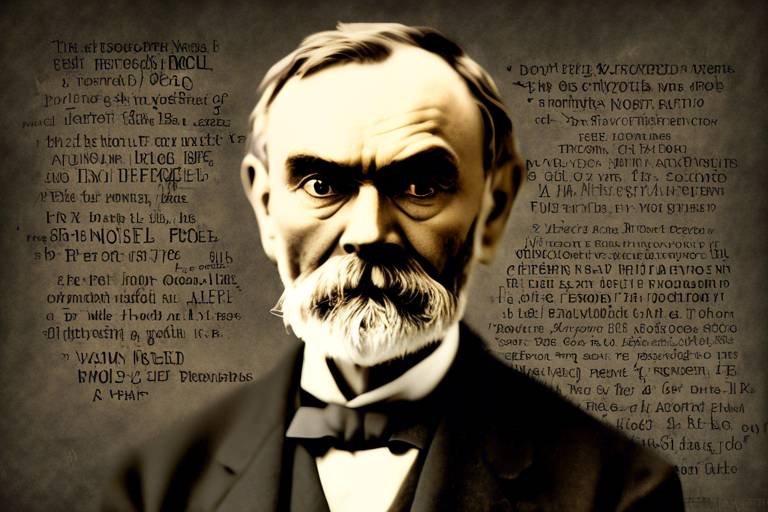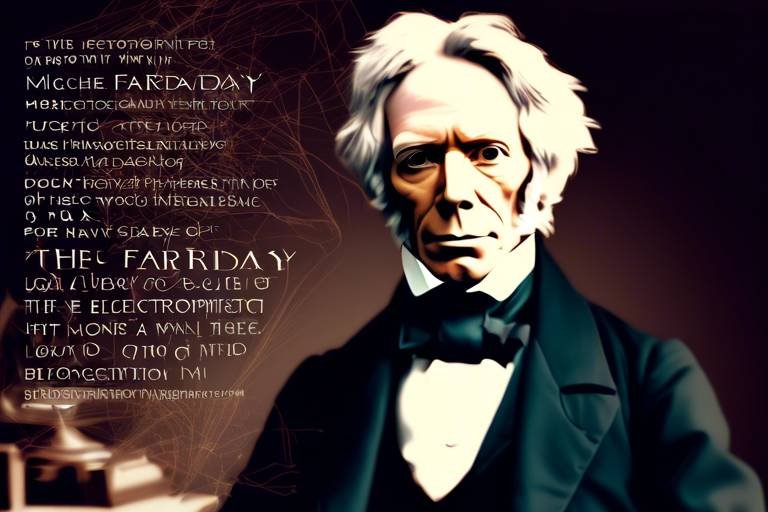The Discoveries of Richard Nixon in Political Science
Richard Nixon, the 37th President of the United States, is often remembered for his controversial presidency, but his contributions to political science extend far beyond the shadow of Watergate. Nixon's political journey provides a fascinating lens through which we can explore the evolution of American politics and international relations. His unique blend of pragmatism, realism, and strategic foresight not only shaped his administration's policies but also left a lasting legacy that continues to influence political thought today.
Nixon's approach to governance was deeply rooted in his understanding of human nature and the complexities of power dynamics. He believed that politics was not merely a game of ideals but rather a practical endeavor that required a keen awareness of the prevailing circumstances. This perspective allowed him to navigate the turbulent waters of the 1960s and 1970s, a period marked by social upheaval, the Cold War, and shifting global alliances.
One of Nixon's most significant contributions to political science is encapsulated in his foreign policy strategies, particularly the Nixon Doctrine. This doctrine represented a fundamental shift in how the United States engaged with its allies and adversaries, emphasizing the importance of empowering other nations to take charge of their own defense. This approach not only reduced the military burden on the U.S. but also redefined America's role in global conflicts.
Moreover, Nixon's tenure witnessed pivotal moments such as the Vietnam War, where his policies of Vietnamization aimed to transition the responsibility of fighting to South Vietnamese forces. This complex strategy showcased his ability to balance military engagement with the necessity of withdrawal, a topic that remains relevant in discussions about military interventions today. Nixon's secret negotiations with North Vietnam were also groundbreaking, illustrating his willingness to engage in diplomacy even amidst ongoing conflict. These actions ultimately shaped the war's conclusion and marked a significant turning point in U.S. foreign policy.
Nixon's influence wasn't confined to foreign affairs; his domestic policies also revolutionized American governance. The establishment of the Environmental Protection Agency during his administration marked a transformative moment in environmental policy, reflecting a growing awareness of ecological issues that resonate even today. Nixon recognized the importance of addressing environmental concerns, paving the way for future legislation aimed at protecting natural resources.
In examining Nixon's legacy, it's essential to consider the duality of his contributions. While he achieved significant diplomatic breakthroughs, such as opening relations with China, his presidency was also marred by the Watergate scandal. This event not only led to his resignation but also raised critical questions about ethics, accountability, and the limits of executive power in American politics. The fallout from Watergate eroded public trust in government institutions, prompting reforms aimed at increasing transparency and accountability.
In conclusion, Richard Nixon's discoveries in political science provide a rich tapestry of insights that continue to inform our understanding of governance, diplomacy, and public trust. His pragmatic approach to politics, marked by a willingness to adapt to changing circumstances, offers valuable lessons for current and future leaders. As we reflect on his contributions, it becomes evident that Nixon's impact on political science is both profound and enduring.
- What was the Nixon Doctrine? The Nixon Doctrine was a foreign policy strategy that aimed to reduce American military involvement abroad by encouraging allies to take more responsibility for their own defense.
- How did Nixon influence environmental policy? Nixon established the Environmental Protection Agency and implemented significant environmental regulations, marking a major shift in American environmental governance.
- What were the key outcomes of Nixon's Vietnam War policies? Nixon's Vietnamization strategy aimed to decrease U.S. troop presence while enhancing South Vietnamese military capabilities, ultimately leading to a ceasefire through negotiations.
- What impact did the Watergate scandal have on American politics? The Watergate scandal eroded public trust in government, prompting reforms aimed at increasing transparency and accountability in political processes.

Nixon's Political Philosophy
Richard Nixon's political philosophy is often described as a blend of pragmatism and realism. Unlike many of his predecessors who were heavily influenced by ideological commitments, Nixon focused on the practical implications of his decisions. His approach can be summed up in a few key principles that guided his governance:
- Realism Over Ideology: Nixon believed that national interests should take precedence over ideological purity. This meant that he was willing to engage with adversaries if it served America's strategic goals.
- Pragmatic Solutions: He emphasized finding practical solutions to political problems rather than adhering strictly to party lines or traditional views.
- Focus on National Security: Nixon's policies were heavily centered around ensuring the safety and security of the United States, particularly during the Cold War era.
This pragmatic approach was particularly evident in his foreign policies. For instance, Nixon's willingness to establish diplomatic relations with China was not just a bold move but a calculated strategy to counterbalance Soviet influence. By engaging with China, he sought to create a new geopolitical landscape that would benefit U.S. interests. This was a significant departure from the isolationist tendencies that characterized American foreign policy in previous decades.
Domestically, Nixon's philosophy also translated into policies that aimed to address pressing social issues while maintaining a focus on law and order. He recognized the importance of appealing to the "silent majority," a term he coined to describe Americans who were not actively protesting but were concerned about the direction of the country. This understanding led him to implement policies that sought to restore public confidence in government while also addressing the needs of various demographic groups.
Nixon's political philosophy was not without its contradictions. While advocating for a strong national defense and a tough stance on communism, he also recognized the need for diplomacy and negotiation. This duality is perhaps best illustrated in his approach to the Vietnam War, where he sought to withdraw American troops while simultaneously strengthening South Vietnam's military capabilities through a policy known as Vietnamization. This complex interplay between aggression and diplomacy defined much of Nixon's political strategy and left a lasting impact on the landscape of American politics.
In conclusion, Nixon's political philosophy was characterized by a pragmatic, realistic approach that prioritized national interests and security. His willingness to adapt and engage in diplomacy, even with former adversaries, marked a significant evolution in U.S. political thought. This philosophy not only shaped his presidency but also laid the groundwork for future political leaders navigating an increasingly complex global landscape.

The Nixon Doctrine
The Nixon Doctrine, announced in 1969, represented a significant turning point in U.S. foreign policy. It was a response to the growing challenges faced by America in a rapidly changing global landscape. Nixon's approach was rooted in a pragmatic understanding of international relations, emphasizing the need for allies to take greater responsibility for their own defense. This doctrine marked a departure from previous policies that relied heavily on direct military intervention, particularly in the context of the Vietnam War.
At its core, the Nixon Doctrine was about empowerment. It aimed to encourage nations to build their own military capabilities, thus reducing the expectation of American involvement in their conflicts. This shift was not merely a strategic maneuver; it reflected a deeper understanding of the limitations of U.S. power and the necessity for a more sustainable approach to international relations. Nixon famously stated that the United States would provide military and economic assistance to allies, but they would have to fight their own battles. This principle resonated deeply during a time when the American public was growing weary of overseas engagements.
The implications of the Nixon Doctrine were profound. It fundamentally altered America's role in global conflicts, particularly in regions such as Southeast Asia and the Middle East. By advocating for a policy of “Vietnamization,”strong> Nixon sought to transfer the responsibility of military engagement to the South Vietnamese forces. This strategy not only aimed to reduce American troop presence but also to instill a sense of independence in allied nations. The goal was to create a more self-sufficient global order where the U.S. would act as a supportive partner rather than a primary actor.
Moreover, the Nixon Doctrine also had a lasting impact on America's relationships with its allies. Countries were encouraged to bolster their own defense strategies, leading to a shift in military dynamics worldwide. This doctrine paved the way for a more multipolar world, where the influence of the United States would be balanced by the capabilities of other nations. It was a bold move, reflecting Nixon's belief in the importance of national interests over ideological commitments.
In summary, the Nixon Doctrine was a pivotal moment in U.S. foreign policy that emphasized the need for allies to take charge of their own defense. By advocating for empowerment and self-sufficiency, Nixon reshaped America's global role and set the stage for future foreign policy strategies. This approach not only influenced military engagements but also established a framework for international relations that continues to resonate today.
- What was the Nixon Doctrine?
The Nixon Doctrine was a foreign policy strategy that emphasized the need for U.S. allies to take greater responsibility for their own defense, reducing the expectation of direct American military intervention.
- How did the Nixon Doctrine affect the Vietnam War?
The Nixon Doctrine led to the policy of Vietnamization, which aimed to decrease American troop presence in Vietnam while increasing the capabilities of South Vietnamese forces.
- What were the long-term implications of the Nixon Doctrine?
The Nixon Doctrine contributed to a shift in military dynamics globally, encouraging allies to bolster their own defenses and fostering a more multipolar world order.

Impact on Vietnam War Policy
Richard Nixon's approach to the Vietnam War was a complex tapestry woven with threads of strategy, pragmatism, and a deep understanding of the political landscape. One of the most significant aspects of his policy was the concept of Vietnamization. This strategy aimed to reduce American military involvement while simultaneously bolstering the capabilities of South Vietnamese forces. Nixon believed that it was essential for the South Vietnamese to take the lead in their own defense, thus allowing the U.S. to gradually withdraw troops without appearing to abandon its allies. This was no small feat, as it required a delicate balance of military might and diplomatic finesse.
In essence, Nixon's Vietnamization policy was like teaching someone to ride a bike; you need to let go of the handlebars at some point, but you also want to ensure they can balance on their own. The idea was to train and equip South Vietnamese troops so they could effectively manage their own security. This shift not only aimed to reduce American casualties but also sought to mitigate the growing anti-war sentiment back home. As the American public became increasingly frustrated with the prolonged conflict, Nixon's strategy was a calculated move to address these concerns while still maintaining the U.S.'s commitment to its allies.
Moreover, Nixon's administration engaged in secret negotiations with North Vietnam, which marked a significant turning point in the war. These negotiations, often shrouded in mystery, were crucial in moving towards a ceasefire. They demonstrated Nixon's willingness to embrace diplomacy even amidst ongoing hostilities. His approach was akin to a chess game, where each move was carefully considered, often involving sacrifices for greater strategic advantages. The culmination of these efforts was the Paris Peace Accords in 1973, which aimed to establish peace in Vietnam and end U.S. involvement in the war.
However, the domestic reactions to Nixon's Vietnam policies were anything but uniform. The American public was deeply divided. While some supported the administration's efforts to end the war, others vehemently protested, believing that any form of engagement was unjustifiable. Protests erupted across the nation, with college campuses becoming hotbeds of dissent. This polarized climate highlighted the challenges Nixon faced in maintaining public support during such a contentious military engagement. The protests were often loud and passionate, serving as a stark reminder of the growing discontent among the populace.
In conclusion, Nixon's impact on Vietnam War policy was profound and multifaceted. His strategies, while aimed at achieving a swift end to U.S. involvement, also laid bare the complexities of American foreign policy during a tumultuous era. The legacy of these decisions continues to resonate in discussions about military engagement and the responsibilities of allied nations. As we reflect on Nixon's approach to Vietnam, it’s crucial to recognize the intricate balance he sought to achieve between military necessity and public sentiment.
- What was Vietnamization? Vietnamization was a strategy implemented by Nixon to reduce American military involvement in Vietnam by training and equipping South Vietnamese forces to take over their own defense.
- How did Nixon's policies affect public opinion? Nixon's policies created a polarized public response, with significant protests against the war contrasting with support for the administration's efforts to end U.S. involvement.
- What role did secret negotiations play in the Vietnam War? Nixon's secret negotiations with North Vietnam were crucial in achieving a ceasefire and ultimately led to the Paris Peace Accords in 1973.

Vietnamization,
This article explores Richard Nixon's significant contributions to political science, analyzing his theories, policies, and their lasting impact on American politics and international relations.
Examining Nixon's unique political philosophy reveals his pragmatic approach to governance, emphasizing realism and the importance of national interests over ideological commitments in shaping foreign and domestic policies.
The Nixon Doctrine marked a pivotal shift in U.S. foreign policy, advocating for the empowerment of allies to take on more responsibility in their defense, fundamentally altering America's role in global conflicts.
Nixon's strategies during the Vietnam War, including Vietnamization, aimed to reduce American troop presence while increasing South Vietnamese military capabilities, showcasing his complex approach to military engagement and withdrawal.
Vietnamization was not just a policy; it was a vision that Nixon had for the future of Vietnam and America’s role in Southeast Asia. The concept revolved around the idea of transferring the responsibility of fighting the war from American forces to the South Vietnamese military. This strategy was crucial as it aimed to fulfill the promise of supporting South Vietnam while gradually reducing U.S. military involvement. The core of Vietnamization was to strengthen the South Vietnamese forces so they could stand on their own against the North.
To put it simply, Nixon wanted to ensure that South Vietnam could defend itself without relying heavily on American troops. This approach was multifaceted and included:
- **Training and equipping South Vietnamese forces**: A significant investment was made in training programs and military supplies to bolster the capabilities of the South Vietnamese Army.
- **Withdrawal of U.S. troops**: Nixon initiated a phased withdrawal of American troops, aiming to bring home soldiers while still maintaining a semblance of support for the South Vietnamese government.
- **Political and economic support**: Alongside military aid, Nixon's administration provided political and economic assistance to stabilize the South Vietnamese government.
This strategy was met with mixed reactions. Supporters argued that it was a necessary step to end American involvement in a deeply unpopular war, while critics contended that it was merely a way to shift the burden of conflict onto another nation. The effectiveness of Vietnamization was put to the test as the South Vietnamese forces faced increasing pressure from the North.
Nixon's secret negotiations with North Vietnam were crucial in achieving a ceasefire, demonstrating his willingness to engage in diplomacy even amidst ongoing conflict, which ultimately shaped the war's conclusion.
The domestic reactions to Nixon's Vietnam policies were mixed, with protests and support reflecting the polarized political climate of the era, highlighting the challenges of maintaining public support during contentious military engagements.
Nixon's administration introduced significant environmental policies, including the establishment of the Environmental Protection Agency, marking a transformative moment in American environmental governance and awareness.
Nixon's groundbreaking visit to China in 1972 reshaped international relations, fostering a new era of diplomatic engagement and opening trade, which had profound implications for global politics and economics.
Nixon's approach to forming strategic partnerships, particularly with China, underscored his belief in leveraging relationships to counterbalance Soviet influence, illustrating a key element of his foreign policy strategy.
The Watergate scandal significantly impacted Nixon's legacy, leading to his resignation and raising critical questions about ethics, accountability, and the limits of executive power in American politics.
The fallout from Watergate eroded public trust in government institutions, prompting reforms aimed at increasing transparency and accountability, shaping the political landscape for future administrations and public engagement.
- What was Vietnamization and why was it important?
Vietnamization was a strategy aimed at transferring the responsibility of the Vietnam War from U.S. troops to South Vietnamese forces. It was important because it marked a shift in U.S. military policy and sought to reduce American involvement in the war. - How did Nixon's policies affect U.S. foreign relations?
Nixon's policies, particularly the Nixon Doctrine and his opening to China, reshaped U.S. foreign relations by promoting a more pragmatic approach that focused on strategic partnerships rather than ideological conflicts. - What were the long-term effects of the Watergate scandal?
The Watergate scandal led to a significant decline in public trust in government, prompting reforms aimed at increasing transparency and accountability in U.S. politics.

aimed to reduce American troop presence while increasing South Vietnamese military capabilities, showcasing his complex approach to military engagement and withdrawal.
This article explores Richard Nixon's significant contributions to political science, analyzing his theories, policies, and their lasting impact on American politics and international relations.
Examining Nixon's unique political philosophy reveals his pragmatic approach to governance, emphasizing realism and the importance of national interests over ideological commitments in shaping foreign and domestic policies.
The Nixon Doctrine marked a pivotal shift in U.S. foreign policy, advocating for the empowerment of allies to take on more responsibility in their defense, fundamentally altering America's role in global conflicts.
Nixon's strategies during the Vietnam War, including Vietnamization, aimed to reduce American troop presence while increasing South Vietnamese military capabilities, showcasing his complex approach to military engagement and withdrawal. This strategy was not merely about pulling out troops; it was about ensuring that the South Vietnamese forces were equipped and trained to defend themselves against the North. Nixon believed that a gradual withdrawal would not only lessen the burden on American military resources but also give the South Vietnamese the confidence and capability to fight for their own nation.
The concept of Vietnamization was revolutionary for its time. It hinged on the idea that the U.S. could not be the sole protector of South Vietnam indefinitely. Instead, Nixon envisioned a future where South Vietnam could stand on its own two feet. This involved a significant investment in training and resources to bolster the South Vietnamese military, ensuring they could assume the primary responsibility for their defense.
However, this approach was fraught with challenges. Critics argued that it was a way for Nixon to extricate the U.S. from an unpopular war without addressing the underlying issues that led to the conflict. The complexity of this strategy highlighted the delicate balance between military engagement and the necessity of withdrawal. Nixon's administration faced immense pressure both domestically and internationally, as the American public grew increasingly disillusioned with the war. The strategy of Vietnamization was a double-edged sword; while it aimed to empower an ally, it also risked leaving them vulnerable if not executed properly.
Nixon's secret negotiations with North Vietnam were crucial in achieving a ceasefire, demonstrating his willingness to engage in diplomacy even amidst ongoing conflict, which ultimately shaped the war's conclusion.
The domestic reactions to Nixon's Vietnam policies were mixed, with protests and support reflecting the polarized political climate of the era, highlighting the challenges of maintaining public support during contentious military engagements.
Nixon's administration introduced significant environmental policies, including the establishment of the Environmental Protection Agency, marking a transformative moment in American environmental governance and awareness.
Nixon's groundbreaking visit to China in 1972 reshaped international relations, fostering a new era of diplomatic engagement and opening trade, which had profound implications for global politics and economics.
Nixon's approach to forming strategic partnerships, particularly with China, underscored his belief in leveraging relationships to counterbalance Soviet influence, illustrating a key element of his foreign policy strategy.
The Watergate scandal significantly impacted Nixon's legacy, leading to his resignation and raising critical questions about ethics, accountability, and the limits of executive power in American politics.
The fallout from Watergate eroded public trust in government institutions, prompting reforms aimed at increasing transparency and accountability, shaping the political landscape for future administrations and public engagement.
- What was the main goal of the Nixon Doctrine?
The Nixon Doctrine aimed to reduce American military involvement abroad by encouraging allies to take on more responsibility for their own defense.
- How did Nixon's policies impact the Vietnam War?
Nixon's policies, particularly Vietnamization, sought to decrease American troop presence while enhancing the capabilities of South Vietnamese forces.
- What was the significance of Nixon's visit to China?
Nixon's visit to China in 1972 opened diplomatic relations and trade, significantly reshaping international relations during the Cold War.
- How did the Watergate scandal affect American politics?
The Watergate scandal led to a crisis of confidence in government, prompting reforms aimed at increasing accountability and transparency in politics.

Negotiations with North Vietnam
Nixon's secret negotiations with North Vietnam were a pivotal part of his strategy to bring an end to the Vietnam War, which had become increasingly unpopular in the United States. These negotiations were not just about reaching a ceasefire; they were about redefining America's role in a conflict that had lasted far too long. Nixon understood that diplomacy could be as powerful as military action, and his willingness to engage with the enemy in secret talks demonstrated a level of pragmatism that was characteristic of his political philosophy.
One of the key components of these negotiations was the concept of Vietnamization. This policy aimed to transfer the responsibility of fighting the war from American troops to the South Vietnamese forces. Nixon believed that by empowering the South Vietnamese military, he could gradually reduce American involvement, thereby addressing the growing anti-war sentiment at home. The strategy was not without its challenges, as it required a delicate balance between military support and political maneuvering.
During these negotiations, Nixon and his National Security Advisor, Henry Kissinger, employed a series of tactics that included:
- Covert Diplomacy: Engaging in secret talks that were not disclosed to the public or Congress, which allowed for more flexibility and candid discussions.
- Leverage of China: Utilizing the improving relations with China as a means to pressure North Vietnam into negotiations.
- Incentives for Peace: Offering economic aid and political recognition as incentives for North Vietnam to agree to a ceasefire.
The culmination of these efforts was the signing of the Paris Peace Accords in January 1973, which aimed to establish peace in Vietnam and end the U.S. military involvement. However, the road to achieving these accords was fraught with obstacles, including fierce resistance from North Vietnamese leaders who were wary of American intentions. Nixon's ability to navigate these complex waters showcased his diplomatic skills and his understanding of international relations.
Despite the eventual agreement, the aftermath of the negotiations was mixed. While they did lead to a reduction in American troops, the conflict continued in Vietnam, illustrating the limitations of diplomatic efforts in the face of deeply entrenched political and social issues. Nixon's negotiations with North Vietnam ultimately highlighted the challenges of achieving lasting peace through diplomacy alone, leaving a legacy that continues to be debated by historians and political scientists alike.

Domestic Reactions
The domestic reactions to Nixon's Vietnam policies were nothing short of a rollercoaster ride, reflecting the deeply divided sentiments of the American populace during the late 1960s and early 1970s. On one hand, there were fervent supporters who believed in Nixon's strategy of Vietnamization, viewing it as a necessary step towards ending American involvement in the war while empowering South Vietnam to defend itself. They argued that this approach would ultimately lead to a more stable and self-sufficient ally in Southeast Asia. However, on the flip side, there was a growing wave of dissent and protest that swept across the nation, fueled by the increasing casualties and the moral implications of the war. This backlash was not just a whisper; it was a powerful roar that echoed through college campuses, streets, and living rooms, as citizens demanded an end to the conflict.
Protests became a common sight, with demonstrators organizing large-scale rallies and marches, often punctuated by dramatic slogans and powerful imagery. The anti-war movement gained momentum, drawing in a diverse coalition of students, veterans, and civil rights activists. Many of these protests were characterized by their passionate calls for peace, as well as their criticism of what was perceived as an unjust war. The infamous Kent State shooting in 1970, where four students were killed by National Guardsmen during a protest, further galvanized public opinion against the war and Nixon's policies. Such events underscored the volatile atmosphere and the challenges Nixon faced in maintaining public support.
In the midst of this turmoil, Nixon's administration attempted to navigate the turbulent waters of public opinion. They employed various strategies to communicate their vision, including televised addresses and press conferences aimed at justifying their actions. However, the effectiveness of these communications was often undermined by the stark reality of the war's impact on American families. The media played a crucial role in shaping perceptions, with graphic images and reports of casualties flooding television screens and newspapers, leading many to question the government's narrative.
Interestingly, the polarized reactions to Nixon's policies also found expression in popular culture. Music became a powerful vehicle for dissent, with artists like Bob Dylan and Joan Baez using their platforms to voice opposition to the war. Songs such as "Blowin' in the Wind" and "Fortunate Son" resonated with a generation disillusioned by the conflict, further amplifying the call for change. This cultural response illustrated how deeply intertwined politics and society had become, as art reflected the frustrations and aspirations of the people.
Ultimately, the mixed domestic reactions to Nixon's Vietnam policies highlighted the complexities of governance during a time of crisis. While some Americans rallied behind the administration's efforts, many others took to the streets, demanding accountability and a reassessment of U.S. involvement in Vietnam. This clash of perspectives not only shaped the political landscape of the era but also left a lasting imprint on the American psyche, as citizens grappled with the implications of war, power, and morality.
- What was the main goal of Nixon's Vietnamization policy?
Nixon's Vietnamization policy aimed to reduce American military presence in Vietnam while increasing the capabilities of South Vietnamese forces to take over the defense of their own country. - How did the public react to the Vietnam War during Nixon's presidency?
The public reaction was deeply divided, with many supporting Nixon's policies while a significant number protested against the war, leading to a polarized political climate. - What role did media play in shaping public opinion about the Vietnam War?
The media played a crucial role by broadcasting graphic images and reports of the war, which fueled public dissent and skepticism towards the government’s narrative. - What were some cultural responses to the Vietnam War?
Music and art became powerful forms of protest, with many artists using their platforms to criticize the war and advocate for peace.

Environmental Policy Innovations
Richard Nixon's presidency marked a significant turning point in the realm of environmental policy, reflecting a growing awareness and concern for the natural world during the late 20th century. Before Nixon took office, environmental issues were often sidelined, overshadowed by pressing economic and social concerns. However, Nixon recognized that the health of the environment was intricately linked to the well-being of the American people and the economy. This realization led to a series of groundbreaking initiatives that would lay the foundation for modern environmental governance in the United States.
One of the most notable achievements of Nixon's administration was the establishment of the Environmental Protection Agency (EPA) in 1970. This was a monumental step, as it centralized federal efforts to protect the environment and enforce regulations aimed at reducing pollution. The creation of the EPA not only demonstrated Nixon's commitment to environmental issues but also reflected a broader societal shift towards environmentalism. The agency was tasked with addressing a myriad of issues, including air and water quality, hazardous waste management, and the protection of endangered species.
Nixon's administration also implemented several key pieces of legislation that transformed environmental policy. Among these were the Clean Air Act of 1970 and the Clean Water Act of 1972. These acts set ambitious standards for air and water quality, aiming to curb pollution and protect public health. The Clean Air Act, for instance, established national air quality standards and mandated states to develop implementation plans to achieve these standards. This legislation was crucial in reducing smog and other harmful emissions, leading to significant improvements in air quality across the nation.
Moreover, Nixon's environmental innovations extended beyond regulatory frameworks. He recognized the importance of public awareness and education in fostering an environmentally conscious society. The first Earth Day was celebrated on April 22, 1970, during his presidency, galvanizing millions of Americans to engage in environmental advocacy and activism. This event not only highlighted the pressing environmental challenges facing the nation but also united individuals from diverse backgrounds in a common cause, demonstrating that collective action could lead to meaningful change.
As we reflect on Nixon's environmental policy innovations, it's essential to acknowledge their lasting impact. The establishment of the EPA and the enactment of landmark legislation set a precedent for future administrations, shaping the trajectory of environmental policy in the United States. Nixon's pragmatic approach to governance, which prioritized national interests while addressing pressing environmental concerns, serves as a reminder that effective leadership often requires a delicate balance between economic growth and environmental stewardship.
In conclusion, Nixon's contributions to environmental policy were not merely reactive; they were visionary. His administration laid the groundwork for a more sustainable future, demonstrating that political leaders could embrace environmentalism as a vital component of governance. As we navigate the complexities of modern environmental challenges, the lessons from Nixon's era remain relevant, urging us to prioritize the health of our planet alongside our economic and social aspirations.
- What was the Environmental Protection Agency (EPA)?
The EPA is a federal agency established in 1970 to protect human health and the environment by enforcing regulations and ensuring compliance with environmental laws.
- What were the key environmental policies enacted during Nixon's presidency?
Key policies included the establishment of the EPA, the Clean Air Act of 1970, and the Clean Water Act of 1972, all of which aimed to reduce pollution and protect natural resources.
- How did Nixon's environmental policies impact future administrations?
Nixon's policies set a precedent for future environmental legislation, influencing how subsequent administrations approached environmental issues and regulation.

Relations with China
Nixon's groundbreaking visit to China in 1972 was nothing short of a diplomatic revolution. It was a moment that not only reshaped international relations but also opened the doors to a new era of engagement between the two nations. Imagine a world where the U.S. and China, two giants with vastly different ideologies, could find common ground. Nixon's visit was the first by a sitting U.S. president to the People's Republic of China, and it marked a significant thaw in relations that had been frozen since the Communist takeover in 1949.
At the heart of this diplomatic maneuver was Nixon's desire to leverage China's growing power as a counterbalance to the Soviet Union. In a time when the Cold War was at its peak, Nixon understood that forming strategic partnerships was essential for maintaining global stability. By engaging with China, he aimed to isolate the Soviets and gain an upper hand in international politics. This was a classic case of realpolitik—prioritizing national interests over ideological differences.
The implications of Nixon's visit were profound. It led to the establishment of formal diplomatic relations between the U.S. and China, paving the way for increased trade and cultural exchanges. The opening of China not only transformed its economy but also had significant effects on global markets. Businesses began to explore opportunities in a country that had been largely closed off from the West for decades. Nixon's initiative can be viewed as a masterstroke that changed the landscape of international trade.
Moreover, Nixon's engagement with China set the stage for future administrations to build upon. It illustrated the importance of diplomacy and dialogue in resolving conflicts and fostering cooperation. The visit was not just a political event; it was a pivotal moment that influenced generations of leaders and shaped the global order. The strategic partnership that emerged from this visit continues to impact U.S.-China relations today.
However, it wasn't all smooth sailing. The complexities of U.S.-China relations meant that there were numerous challenges to navigate. Issues such as human rights, trade imbalances, and military tensions have persisted, reminding us that while Nixon's visit was a significant step forward, the road to a stable relationship has been fraught with difficulties. Understanding this historical context is crucial for analyzing current events and future interactions between these two powerful nations.
In summary, Nixon's visit to China was a landmark event that redefined international relations and opened up new avenues for cooperation. It was a bold move that demonstrated the power of diplomacy and the importance of adapting to changing global dynamics. As we look back on this significant moment in history, it serves as a reminder of the potential for dialogue to bridge divides and foster understanding, even among the most unlikely partners.
- What was the significance of Nixon's visit to China? Nixon's visit in 1972 marked the first time a sitting U.S. president visited China, leading to a thaw in relations and the establishment of formal diplomatic ties.
- How did Nixon's policies affect U.S.-China relations? Nixon's policies aimed to leverage China as a counterbalance to Soviet influence, opening the door for trade and cultural exchanges that reshaped global dynamics.
- What were the long-term effects of Nixon's engagement with China? Nixon's engagement laid the groundwork for future diplomatic relations and economic ties, influencing U.S.-China relations for decades to come.

Strategic Partnerships
Nixon's approach to forming was nothing short of revolutionary. He understood that in the complex chess game of international relations, forging alliances was not merely about friendship; it was about power dynamics and influence. His most notable achievement in this realm was the historic opening to China in 1972. This was a pivotal moment that not only shifted the balance of power but also demonstrated his keen ability to engage in diplomatic maneuvering that had profound implications for global politics.
By reaching out to China, Nixon aimed to create a counterbalance to the Soviet Union, which was seen as a formidable adversary during the Cold War. This strategy was based on the belief that engagement could yield more favorable outcomes than isolation. In fact, Nixon once stated, “You can’t be a great power if you don’t have great relationships.” This philosophy guided his administration's foreign policy, leading to a series of diplomatic initiatives that reshaped international alliances.
Furthermore, Nixon's engagement with China opened the door for trade relations that have since become a cornerstone of the global economy. The U.S.-China relationship blossomed, leading to increased economic interdependence that continues to influence global markets today. This strategic partnership not only enhanced America's standing in Asia but also provided a critical avenue for economic growth.
To illustrate the impact of Nixon's strategic partnerships, consider the following table that highlights key milestones in U.S.-China relations during his presidency:
| Year | Event | Significance |
|---|---|---|
| 1971 | Ping Pong Diplomacy | Opened communication channels between the U.S. and China. |
| 1972 | Nixon's Visit to China | First sitting U.S. president to visit China, marking a thaw in relations. |
| 1979 | Normalization of Relations | Formal diplomatic relations established, leading to trade agreements. |
In addition to China, Nixon sought to build relationships with other nations as well, including key players in the Middle East and Europe. His administration recognized that a network of alliances could serve as a bulwark against communism and provide stability in volatile regions. By fostering these partnerships, Nixon aimed to create a more secure and economically viable world.
In conclusion, Nixon's strategic partnerships were not just about diplomacy; they were about crafting a vision for a new world order. His ability to navigate complex international waters and build alliances that served U.S. interests has left a lasting legacy on the landscape of global politics. The relationships he forged continue to influence diplomatic strategies and economic policies to this day, proving that in the world of politics, it's often about who you know as much as what you know.
- What was the significance of Nixon's visit to China?
Nixon's visit to China in 1972 was significant as it marked the first time a sitting U.S. president visited the country, opening diplomatic relations and altering the balance of power during the Cold War.
- How did Nixon's policies impact U.S.-China relations?
Nixon's policies laid the groundwork for a long-term partnership with China, fostering economic ties and creating a counterbalance to Soviet influence, which reshaped global politics.
- What legacy did Nixon's strategic partnerships leave behind?
Nixon's strategic partnerships have had a lasting impact on international relations, influencing diplomatic strategies and economic policies that continue to shape the global landscape today.

The Watergate Scandal
The Watergate scandal stands as one of the most significant events in American political history, casting a long shadow over the presidency of Richard Nixon. This scandal, which began with a break-in at the Democratic National Committee headquarters in the Watergate office complex in Washington D.C. in 1972, ultimately led to Nixon's resignation in 1974. What started as a seemingly minor crime spiraled into a full-blown political crisis that exposed deep-seated issues within the American government and the fragility of trust in political institutions.
At the heart of the scandal was a complex web of cover-ups, deceit, and abuse of power. Nixon's administration attempted to obstruct justice by misleading investigators and using government resources to manage the fallout. The scandal revealed how far some in power would go to protect their interests, raising troubling questions about the ethical boundaries of political conduct. It became clear that this was not just a case of a few rogue operatives; it was a reflection of a broader culture of corruption that had taken root in the highest levels of government.
As the investigation unfolded, the Watergate hearings captivated the nation. Televised testimonies brought the drama directly into American living rooms, allowing citizens to witness the unraveling of a presidency. Key figures, including former White House aides and members of Nixon's administration, provided damning evidence that implicated Nixon himself. The infamous tape recordings of Nixon's conversations, which revealed his involvement in the cover-up, became pivotal in the case against him. The Supreme Court's ruling that he must release the tapes was a watershed moment, underscoring the principle that no one is above the law.
The fallout from the Watergate scandal had profound implications for American politics. It led to Nixon's resignation on August 8, 1974, making him the first president in U.S. history to step down from office. His departure marked a significant turning point, prompting a national conversation about accountability, transparency, and the need for reforms in government practices. In response to the scandal, Congress passed a series of laws aimed at increasing transparency and reducing the potential for future abuses of power, including the Federal Election Campaign Act and the Ethics in Government Act.
In the wake of Watergate, public trust in government plummeted. Polls indicated that many Americans felt disillusioned, questioning the integrity of their leaders and the effectiveness of their democratic institutions. The scandal not only reshaped the political landscape of the 1970s but also set a precedent for how future administrations would be scrutinized. It served as a reminder that the actions of those in power can have far-reaching consequences, and that vigilance is necessary to safeguard democracy.
In conclusion, the Watergate scandal was more than just a political crisis; it was a dramatic chapter in the story of American democracy. It highlighted the importance of ethical governance and the need for checks and balances in a system where power can easily corrupt. Nixon's legacy is forever intertwined with this scandal, serving as a cautionary tale about the limits of executive power and the enduring need for accountability in government.
- What was the Watergate scandal?
The Watergate scandal was a political scandal involving a break-in at the Democratic National Committee headquarters and the subsequent cover-up by the Nixon administration. - How did the Watergate scandal affect Nixon's presidency?
The scandal led to Nixon's resignation in 1974, making him the first U.S. president to resign from office. - What were the long-term effects of Watergate on American politics?
Watergate led to a significant decline in public trust in government and prompted reforms aimed at increasing transparency and accountability. - What reforms were implemented after Watergate?
Key reforms included the Federal Election Campaign Act and the Ethics in Government Act, which aimed to reduce corruption and increase oversight.

Consequences for Political Trust
The Watergate scandal was more than just a political crisis; it was a watershed moment that reshaped the very fabric of American political trust. As the details of the scandal unfolded, it became evident that the actions of Nixon and his administration had profound implications for how the public viewed their government. The revelations of deceit, cover-ups, and abuse of power led many citizens to question the integrity of their leaders. This erosion of trust was not merely a fleeting sentiment; it sparked a long-lasting skepticism towards political institutions that persists to this day.
One of the most significant consequences was the demand for increased transparency in government operations. Citizens, now more aware of the potential for corruption and misconduct, began to advocate for reforms aimed at holding elected officials accountable. This shift in public perception prompted a wave of legislative changes, including the Freedom of Information Act amendments and the establishment of ethics committees within Congress. These reforms aimed to create a more transparent political environment, ensuring that the actions of government officials could be scrutinized by the public.
Moreover, the scandal highlighted the necessity for checks and balances within the political system. The idea that no one, not even the President, should be above the law resonated deeply with the American populace. This realization led to a more vigilant electorate, one that demanded accountability and ethical behavior from their representatives. The result was a political landscape where public opinion could no longer be taken for granted, and where leaders were expected to uphold a standard of integrity that had been severely compromised.
Interestingly, the fallout from Watergate also had a ripple effect on voter engagement. In the years following the scandal, there was a noticeable shift in how Americans participated in the political process. Many citizens became more active in grassroots movements, seeking to influence policy and hold their leaders accountable. This newfound activism was fueled by a desire to restore faith in the political system and ensure that such abuses of power could never happen again.
As a result, the Watergate scandal served as a catalyst for a more engaged and informed electorate. Citizens began to realize that their voices mattered and that they had the power to effect change. This awakening was crucial in shaping the political climate of the late 20th century and beyond. The legacy of Watergate, therefore, is not solely one of scandal and betrayal, but also one of empowerment and reform.
In summary, the consequences of Watergate on political trust were profound and far-reaching. It led to a demand for transparency, accountability, and a more engaged electorate, fundamentally altering the relationship between the American public and their government. As we reflect on this pivotal moment in history, it is essential to recognize the lessons learned and the ongoing importance of vigilance in maintaining the integrity of our political institutions.
- What was the Watergate scandal? The Watergate scandal was a political scandal in the 1970s involving a break-in at the Democratic National Committee headquarters and the subsequent cover-up by President Nixon's administration.
- How did Watergate affect public trust in government? Watergate significantly eroded public trust in government, leading to increased skepticism and demands for transparency and accountability from elected officials.
- What reforms were enacted as a result of Watergate? Reforms included amendments to the Freedom of Information Act, the establishment of ethics committees, and various measures aimed at increasing government transparency.
- Did Watergate influence voter engagement? Yes, the scandal prompted a more engaged electorate, with many citizens actively participating in grassroots movements to hold their leaders accountable.
Frequently Asked Questions
- What was Richard Nixon's political philosophy?
Nixon's political philosophy was characterized by a pragmatic approach, emphasizing realism and prioritizing national interests over strict ideological commitments. He believed that effective governance required flexibility and a focus on practical outcomes, particularly in foreign and domestic policies.
- What is the Nixon Doctrine?
The Nixon Doctrine was a significant shift in U.S. foreign policy that advocated for empowering allies to take more responsibility for their own defense. This approach aimed to reduce American military involvement abroad while still maintaining strong support for allies, fundamentally altering America's role in global conflicts.
- How did Nixon's policies affect the Vietnam War?
Nixon's strategies during the Vietnam War included the policy of Vietnamization, which sought to reduce American troop presence while enhancing the capabilities of South Vietnamese forces. This complex approach aimed to ensure a stable withdrawal from Vietnam while still supporting the South Vietnamese government.
- What were the domestic reactions to Nixon's Vietnam policies?
The domestic reactions to Nixon's Vietnam policies were polarized, with significant protests against the war alongside pockets of support. This division highlighted the challenges Nixon faced in maintaining public backing during a contentious military engagement.
- What environmental policies did Nixon implement?
Nixon's administration made notable advances in environmental policy, including the establishment of the Environmental Protection Agency (EPA). This marked a transformative moment in American environmental governance, reflecting a growing awareness of ecological issues.
- How did Nixon's visit to China affect international relations?
Nixon's groundbreaking visit to China in 1972 reshaped international relations by fostering a new era of diplomatic engagement. This strategic move opened up trade opportunities and had profound implications for global politics, particularly in counterbalancing Soviet influence.
- What was the Watergate scandal and its impact?
The Watergate scandal was a major political event that led to Nixon's resignation. It raised critical questions about ethics, accountability, and the limits of executive power in American politics, significantly impacting his legacy and public trust in government institutions.
- How did Watergate affect public trust in government?
The fallout from the Watergate scandal eroded public trust in government institutions, leading to calls for reforms aimed at increasing transparency and accountability. This shift shaped the political landscape for future administrations and influenced public engagement in politics.


